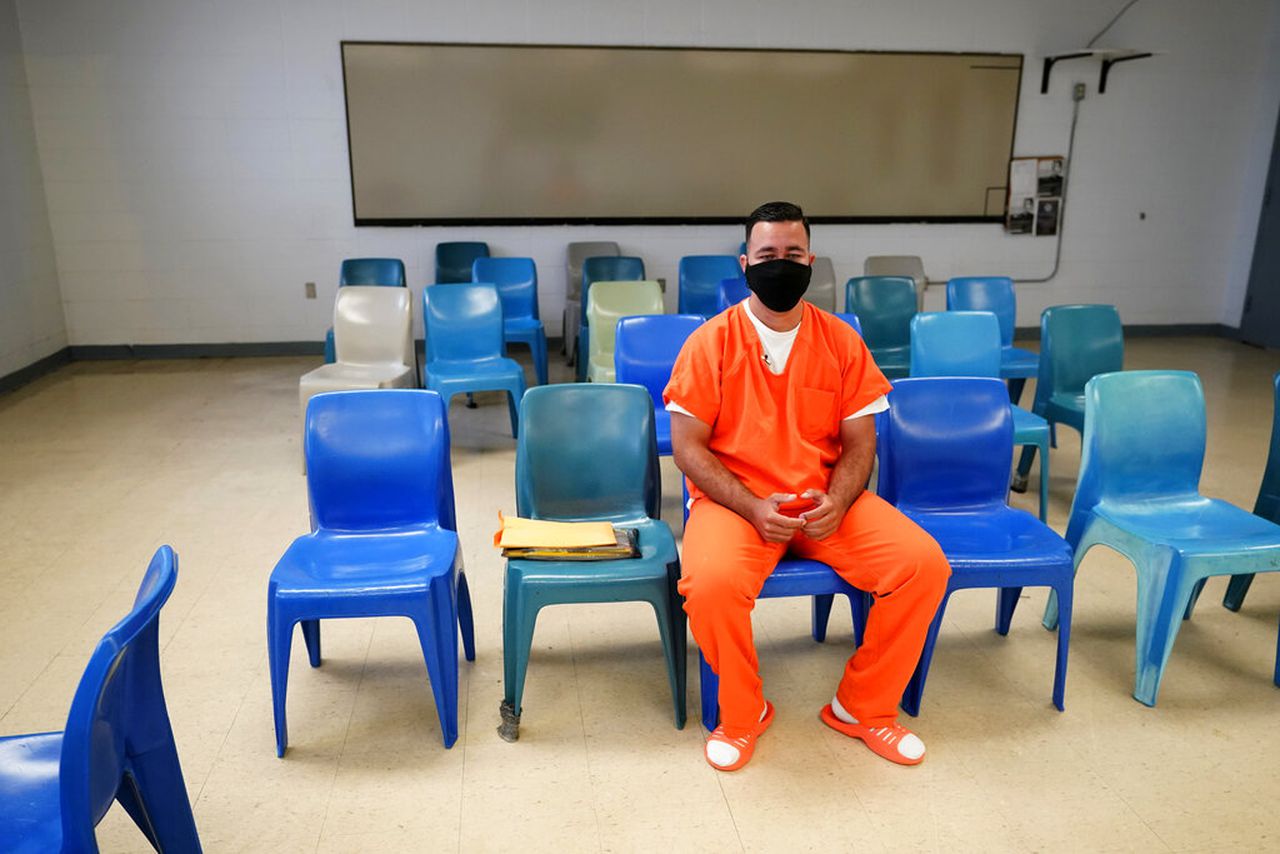Pressure to shut down Louisiana detention center mounts with release of reported abuses
On routine visits to Winnfield Correctional Center (Winn), human rights attorney Sarah Decker comes face to face with migrants battered by the harsh conditions of prolonged confinement.
Advocates released a report documenting years of abuse and torture at Winn accompanied by an urgent plea to Department of Homeland Security Secretary Alejandro Mayorkas not to renew a contract for the facility, which is set to expire in May.
“It’s rare for the government’s own oversight bodies to find so many deficiencies in a facility back to back and it’s also quite rare for one of those oversight agencies to actually recommend a depopulation and ending the use of a particular facility because of the record of abuse ” Decker said.
Winn is approaching capacity with around 1,400 detainees confined to filthy crowded cells, exposed to mold, fed expired food and offered tainted water. They are routinely denied medical care, verbally abused and physically assaulted by Immigration and Customs Enforcement (ICE) agents — all according to the recent report.
Winn staff punish detainees with lengthy periods of isolation. One detainee was sent to solitary confinement for a month for taking a shower at 11pm, the report said. The punishment is one of the most egregious human rights abuses Decker has seen, she said. It goes by several names at Winn: solitary confinement, disciplinary segregation, administrative segregation, shoe, the hole. But the impact is all the same: Physical and social isolation cause serious psychological distress linked to long-lasting mental challenges. This report documents that solitary confinement has lead detainees to attempt suicide.
Decker said authorities at Winn find all sorts of reasons to send detainees to solitary confinement, from belonging to the LGBTQ+ community to speaking about the abuse they’ve faced.
“We very frequently see ICE weaponizing solitary confinement,” she said. “Everyone that we speak to who’s subjected to prolonged solitary confinement has really devastating psychological effects from it, including suicidal ideation. Unfortunately, if someone in the general population expresses suicidal ideation, the response from ICE is to place them in solitary under suicide watch, which then, as you can imagine, further aggravates their problem.”
The report shows racism is rampant at the facility. Detainees are pressured to sign documents written in English with no translation. An Ecuadorian detainee told Decker that officers mocked his facial features and barred him from going outside because he was “too short.”
Anti-Black violence is also on the rise, Decker said. Winn personnel joke about lynching Black detainees and regularly deny their parole applications with little justification or opportunity for review.
“This is a pattern that we saw at a few facilities, but particularly at Winn, where a group of majority-lack immigrants were protesting their rights in detention,” Decker said. “It’s something we believe is systemic in all of the [Louisiana]ICE jails, but I have observed a particular uptick in those incidents at Winn compared to other facilities.”
This summer, ICE officers beat and hurled slurs at a Nigerian migrant, sending the man to an outside medical facility for treatment of his injuries. Months later, officers from LaSalle Corrections, the for-profit prison corporation that operates Winn, sexually harassed the same man on multiple occasions. The New Orleans ICE Field Office was notified about the abuse and transferred the man to several other facilities before ultimately deporting him.
In 2021, ICE officers attacked a group of Cameroonian asylum seekers, throwing them to the ground and hurling slurs at them. The attack was an attempt at forcing the migrants to sign or fingerprint deportation documents.
The Cameroonians filed a civil rights lawsuit prompting an investigation of Winn, where The Department of Homeland Security’s Office of Civil Rights and Civil Liberties found “culture and conditions that can lead to abuse, mistreatment and discrimination.” The agency recommended Winn’s population be drawn down to zero until conditions improved. At minimum, they recommended Winn half its population to correspond with the number of showers and toilets available.
Despite recognition of the abuse by White House officials and pledges from Secretary Mayorkas to halt anti-immigrant abuses, the population at Winn continues to grow, nearing capacity with an average of 1,462 detainees daily.
In fact, Decker said, the upcoming depopulation of another Louisiana detention center could see an influx of migrants transferred to Winn as soon as the end of the year.
The only resolution, she said, is to shut Winn down.
